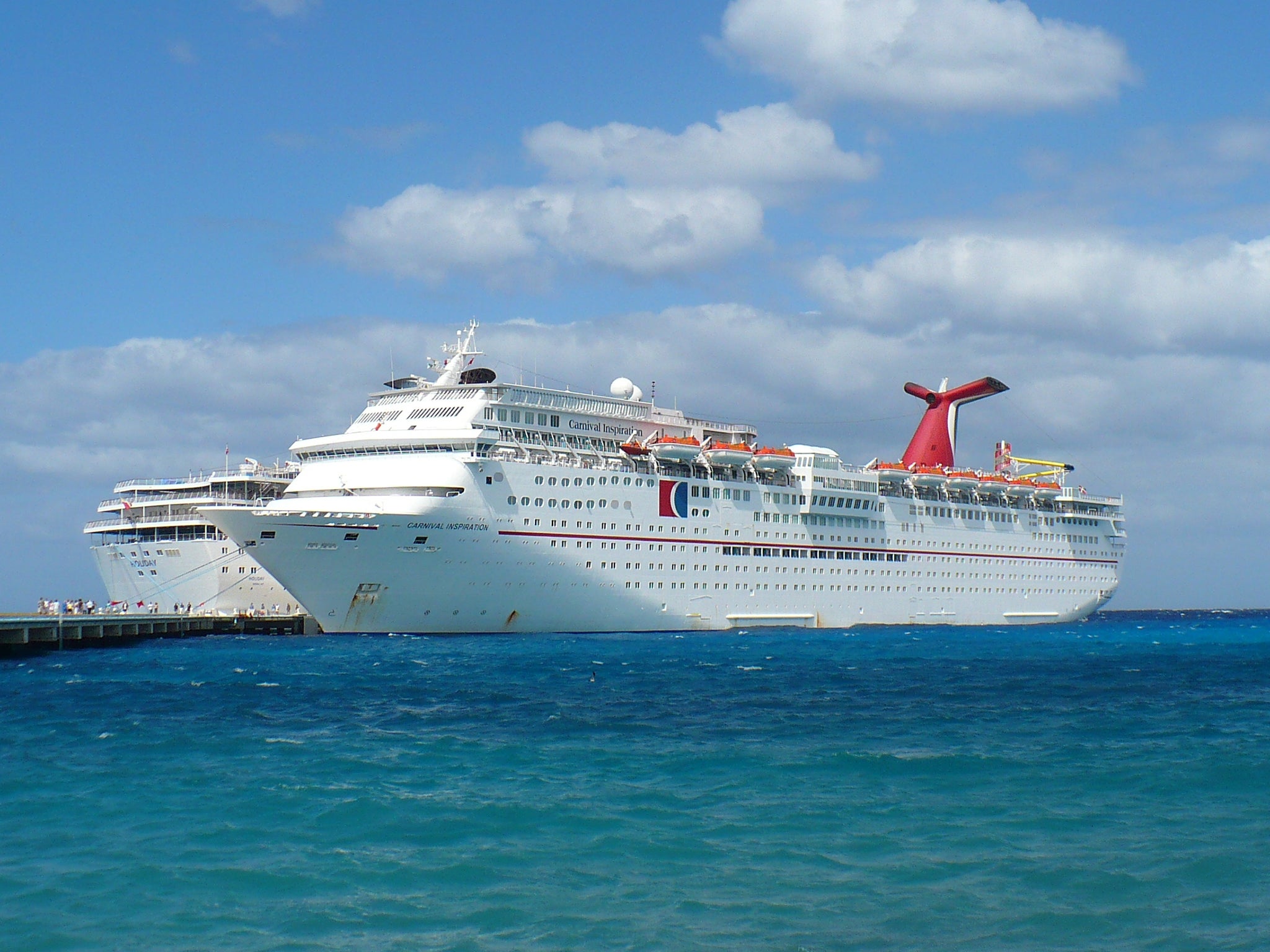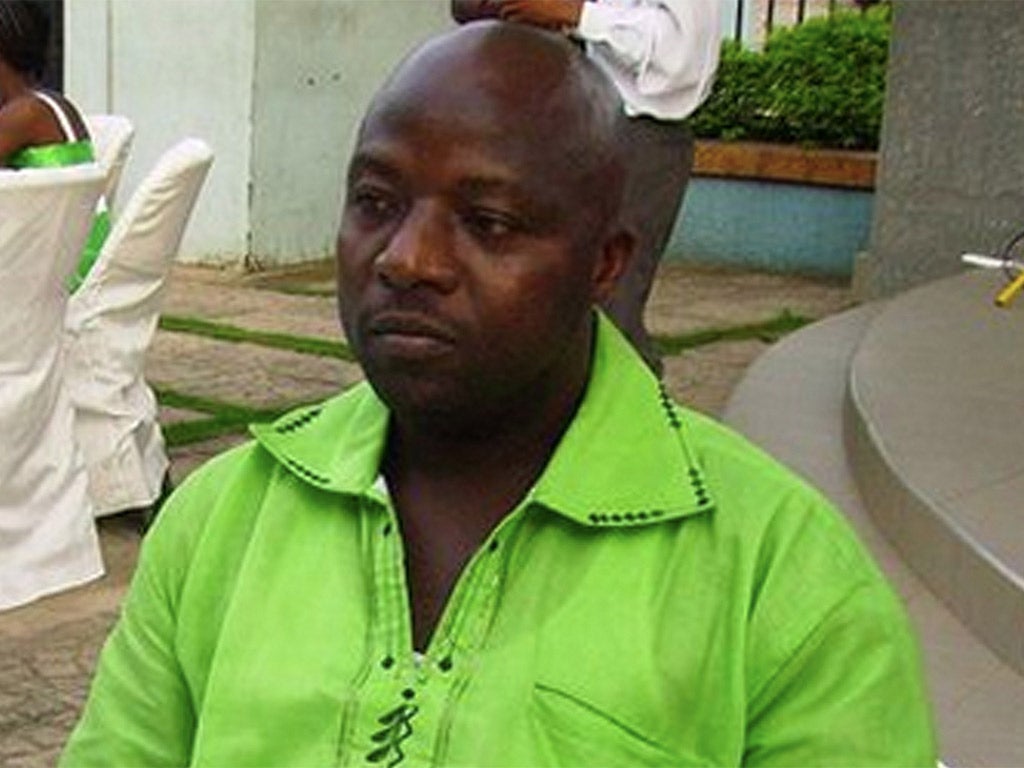Ebola cruise ship ‘in utter panic’ as Mexico and Belize refuse to let it dock
The Carnival Magic cruise ship with Texas healthcare worker exposed to Ebola aboard arrived back in the US on Sunday morning

Your support helps us to tell the story
From reproductive rights to climate change to Big Tech, The Independent is on the ground when the story is developing. Whether it's investigating the financials of Elon Musk's pro-Trump PAC or producing our latest documentary, 'The A Word', which shines a light on the American women fighting for reproductive rights, we know how important it is to parse out the facts from the messaging.
At such a critical moment in US history, we need reporters on the ground. Your donation allows us to keep sending journalists to speak to both sides of the story.
The Independent is trusted by Americans across the entire political spectrum. And unlike many other quality news outlets, we choose not to lock Americans out of our reporting and analysis with paywalls. We believe quality journalism should be available to everyone, paid for by those who can afford it.
Your support makes all the difference.Passengers aboard the cruise ship at the centre of an Ebola scare were in a panic after being refused to dock at either Mexico or Belize, with one claiming “it’s like a floating petri dish.”
A Texas healthcare worker who had handled a blood sample of Thomas Duncan, the Liberian man who died from Ebola in the US earlier this month, has been quarantined in her room aboard the Carnival Magic cruise ship.
The unnamed woman, who is a lab supervisor at Texas Health Presbyterian, is deemed by the CDC to be “low risk” and has yet to exhibit symptoms.
She is also approaching the end of her 21-day maximum incubation window after which it can be confirmed that she did not contract Ebola.
Update: Upon examination at Galveston County Health Authority, the quarantined passenger is confirmed not to have Ebola.
Since it left Galveston, Texas on October 12, the cruise twice attempted to dock to enable the quarantined woman to fly back to the US for observation.
First Belize refused to let the ship dock, its Prime Minister Dean Barrow saying “there are still a lot of unanswered question as to how this thing gets transmitted.”
Then Mexico turned away the Carnival Magic thereby forcing it to maintain the on-ship quarantine as it returned to the US. It arrived at Galveston, Texas at around 6am Sunday morning.
The news of the potential Ebola infection, and the subsequent rejected requests to dock, prompted a panic aboard the cruise, with one passenger likening the ship to a “floating petri dish.”
Jon Malone is quoted by The Telegraph as saying: "People are scared. I've seen people crying. You're using the same buffet line as someone else, the same waiters, the folks that clean the state rooms.
"It's really difficult to control any type of virus that's on a cruise ship. It's like a floating petri dish. It spreads very rapidly. They're cleaning elevators. I've seen people with pink liquid cleaning the bar area and the handrails."

Another passenger, who called himself Michael, told CNN: "Obviously our concern is where is this person is on the ship and what kind of set up do they have to care for them? I can't imagine it's a completely quarantined area. They have not told us at all where the person is.
"My wife has medication for a kidney transplant, she's susceptible to getting something a little easier than the rest of us, and we don't know where this person has been on the ship."
Eric Lupher, a reporter for ABC7 in Denver, Colorado, is aboard the ship. He said: "We were about five miles off the shore of Belize just sitting in the boat in the ocean, not knowing what was going on. The boat wasn't moving. It was like that for several hours. Then we started moving in the middle of the night.
"More than 12 hours later we were told this person was on the ship. The captain came on the loudspeaker and told us what was going on. He never said the word Ebola, but everyone knew. On the elevators, people were talking about it. And a lot of people were upset about it."
He added: "There is a lot of concern over what's going to happen when we get back to Galveston. It's our understanding we're just going to get off the boat and go home - but is that really going to happen?"
Lupher has been posting on Twitter about the situation on the Carnival Magic. On Saturday evening, he tweeted a picture of a helicopter that picked up a blood sample of the quarantined passenger, a development that has been confirmed by US officials.
He wrote: “Blood sample successfully picked up by chopper. Again… we’re told the passenger is still ‘completely healthy’”.
He also posted an image of the captain’s statement regarding the Ebola scare.
The document said: “We were not aware of this situation at the time this guest embarked the ship, and the CDC deemed this individual to be low risk and cleared to travel.
We continue to be in close contact with the CDC and our medical team continues to monitor the guest. The individual remains symptom free and is not contagious. The CDC has advised us the guests and crew on board are not at risk.”
The health care worker had left the country before being informed of the CDC’s new requirement for active monitoring, US officials said on Friday.
She reportedly began a self-quarantine after two nurses from the Dallas hospital who cared for Ebola victim Thomas Duncan contracted the virus.
This year Ebola has killed nearly 4,500 people, mostly in west Africa.
In his weekly address to the American people, US President Barack Obama said people must not “give In to hysteria or fear.”
Addressing a series of recent alarms about the virus, he said: “What we’re seeing now is not an ‘outbreak’ or an ‘epidemic’ of Ebola in America. This is a serious disease, but we can’t give in to hysteria or fear."
The US will not implement a travel ban to and from the US and west Africa, he announced.
He said: "Trying to seal off an entire region of the world, if that were even possible, could actually make the situation worse.
"Experience shows that it could also cause people in the affected region to change their travel, to evade screening, and make the disease even harder to track."
Additional reporting from Reuters
Join our commenting forum
Join thought-provoking conversations, follow other Independent readers and see their replies
Comments